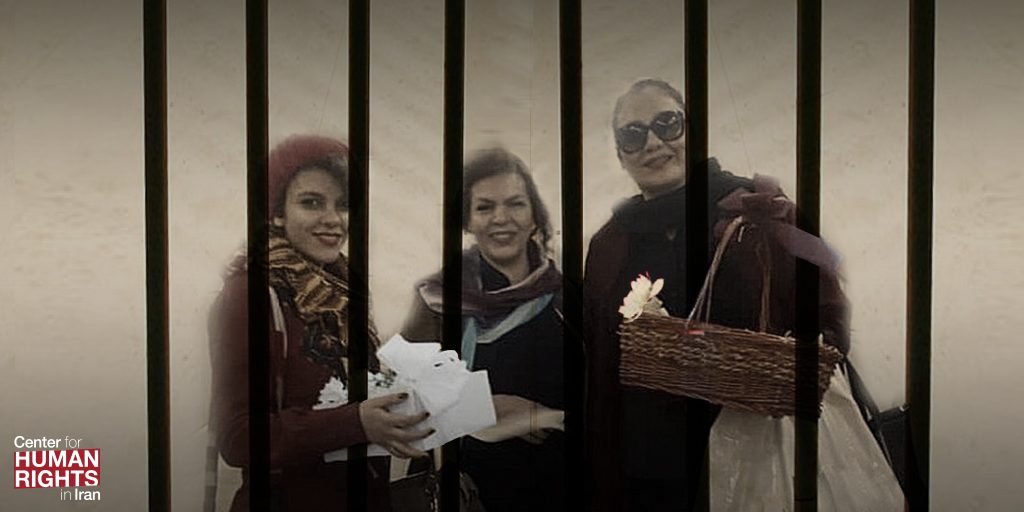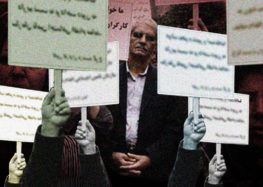Three Women Issued Lengthy Prison Sentences for Peacefully Protesting Iran’s Mandatory Hijab Law

Mojgan Keshavarz has been sentenced to 23.6 years in prison while Monireh Arabshahi and her daughter Yasaman Ariyani have each been sentenced to 16 years in prison for peacefully campaigning against Iran’s mandatory hijab law.
All three women were charged with “encouraging people to corruption and prostitution,” “assembly and collusion against national security,” “propaganda against the state.” Keshavarz was also found guilty of the additional charge of “insulting the sacred.”
Denied legal counsel throughout the judicial process, the women received their sentences on July 31, 2019, issued by Branch 28 of the Revolutionary Court in Tehran, attorney Mohammad Moghimi told the Center for Human Rights in Iran (CHRI) on August 3, 2019.
“I will definitely lodge an appeal on Ms. Keshavarz’s behalf and I hope this political verdict will be quashed,” he said.
Moghimi represents Keshavarz. Ariyani and her mother are represented by defense attorney Amir Raesian. Both attorneys were denied access to their clients during the initial investigation stage and were not allowed to be in court during the trial, Moghimi said.
“Some of the accusations against [Keshavarz] included inciting people during street protests on International Women’s Day [March 8, 2019], membership in a feminist anti-state group, membership in White Wednesdays [anti-forced hijab campaign] and a group known as No to Violence Against Women, collaborating with Masih Alinejad’s [My Stealthy Freedom] page [on Facebook], inviting women to remove their hijab through media interviews and social media posts, supporting [imprisoned human rights lawyer] Nasrin Sotoudeh, mandatory-hijab protester Shapark Shajarizadeh, [deceased political prisoner] Alireza Shirmohammadali and [mandatory-hijab protester] Vida Movahed as well as defending [striking] Haft Tappeh sugar mill workers and helping flood victims with the intention to incite people against the state,” Moghimi wrote on his private Instagram account.
In a widely shared video that appeared on multiple social media networks on March 8, 2019, International Women’s Day, the three were seen handing out flowers in the Tehran metro while suggesting to passengers that the hijab should be a choice. They were later arrested on different days the following month. Ariyani on April 10, Arabshahi on April 11 and Keshavarz on April 25.
At least 32 women and men have been arrested since January 2018 and at least 12 sentenced to prison since that time for peacefully opposing the government-mandated hijab.
They were sentenced under charges related to “morality” and “national security.”
Article 638 of Iran’s Islamic Penal Code specifies ten days to two months imprisonment for women caught not wearing the government-mandated hijab in public but defendants could receive harsher sentences for not abiding by the hijab law under “morality” charges.
Article 639 of the code stipulates 1-10 years imprisonment for “anyone who establishes or directs a place of immorality or prostitution” or anyone who “facilitates or encourages people to immorality or prostitution.”
On July 29, 2019, the head of the Revolutionary Court in Tehran, Mousa Ghazanfarabadi, warned: “those who film themselves or others while removing the hijab and send photos to this woman … will be sentenced to between one and 10 years in prison.”






